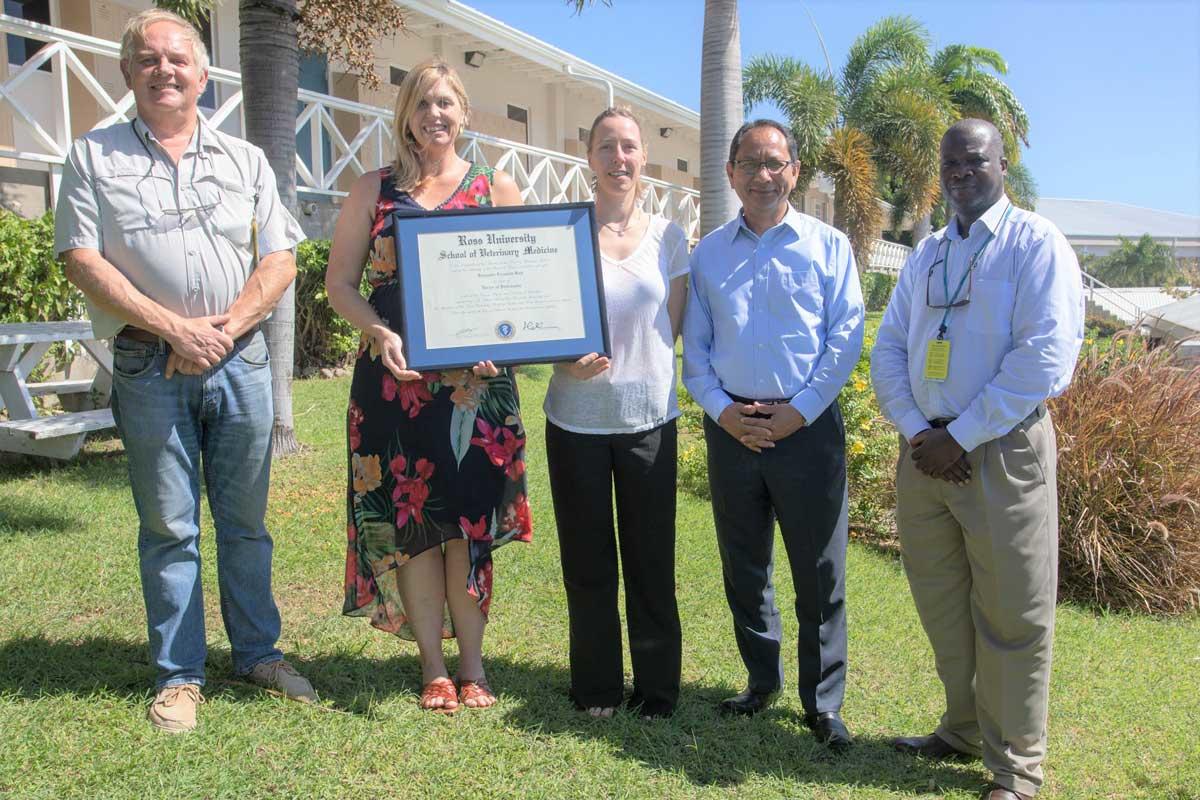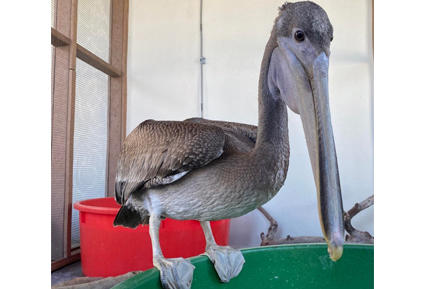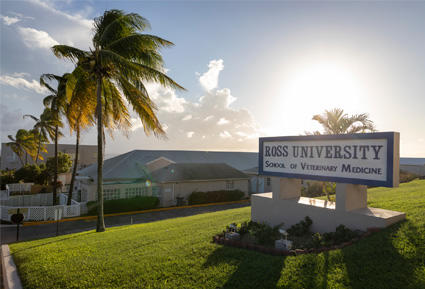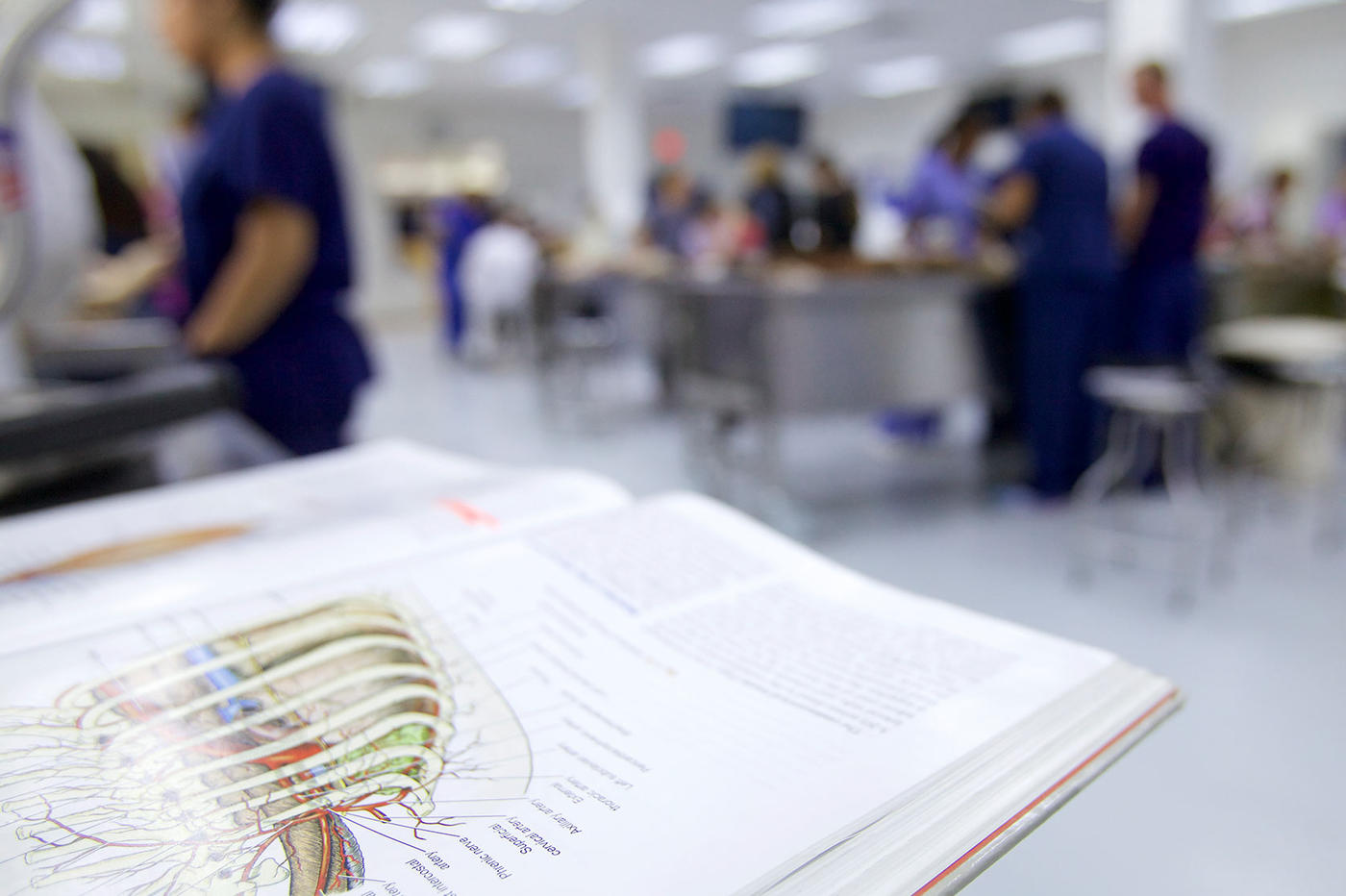Dr. Burgunde Elisabeth ‘Lisbett’ Rink, successfully defended her thesis on September 21, 2018 in the presence of her Examination Committee, which was followed by a public defense at Ross University School of Veterinary Medicine (RUSVM), St Kitts on November 20, 2018, making her the first recipient of RUSVM's doctoral degree in research.
The German native began her first job as a stunt horse rider at an open air theatre in Saxonian Switzerland. This passion for horses led her to study Equine Science and later Veterinary Medicine at the University of Veterinary Medicine, Vienna. Choosing to specialize in equine reproduction, Lisbett decided to spend the horse breeding season 2013/14 in Te Awamutu, New Zealand, with Registered Specialist in Equine Reproduction, Lee Morris, before embarking on the PhD program at RUSVM to isolate and characterize mesenchymal stem cells (MSCs) from the equine endometrium.
We sat down for a quick Q&A with the researcher to hear of her experience of realizing her dreams at RUSVM.
Why did you choose RUSVM to pursue to your PhD?
I was approached by one of my Professors from Vienna, Dr. Christine Aurich, who asked if I would be interested in a PhD program. Well, the proposal seemed very nice; working for two years in a renowned Roslin Institute, Edinburgh (the home of Dolly the Sheep - the first mammal ever cloned from an adult cell in the mid 1990’s). Then, to spend some time defrosting from the gloomy Scottish weather by working at RUSVM in the Caribbean. I thought, why not?
Tell us about the research you completed during your Doctoral degree.
My research involved isolating and characterizing mesenchymal stem cells (MSC) from the equine endometrium. These are adult multipotent cells, which have the potential to differentiate, into cartilage or bone, or muscle or fat cells, but which are not of embryonic origin, like a “true” stem cell. By isolating and characterizing these cells from the equine endometrium we can investigate application routes through the equine endometrium/uterus and their potential role in regenerative medicine applications. I thoroughly enjoyed the experience. My only challenge was having 5 supervisors in 3 time zones– but I was up for the challenge and it enabled me to learn much from each of these institutes and, of course, to have fun doing so.
What advice do you have for students thinking about undertaking a PhD?
- Be willing to learn, question everything and switch on your brain!
- THINK about what you’re about to do, don’t just do it because someone told you so.
- Do your literature search properly to establish and optimize protocols.
- Meet with your supervisors to help you get started!
- Other than that, enjoy the ride and give it your best!
What are your plans having attained your PhD?
I’ve moved back to my hometown of Dresden, which is just one of the best cities there is, and recently started work in a lab (Molecular biology). I have no clue where I’ll be in 5 years, but I hope I am going to be happy, since this is the most important thing in life!
Photo caption (L - R): Senior scientist, Dr. Michel Vandenplas; Department of Clinical Sciences Head, Dr. Hilari French; RUSVM's first doctoral recipient in research, Dr. Burgunde Elisabeth Rink; Associate Professor of Veterinary Anatomy and Immunology, Dr. Rodolfo Nino Fong and Associate Professor of Veterinary Virology, Director for the Center for Integrative Mammalian Research, Dr. Felix Toka.
Ross University School of Veterinary Medicine wishes Dr. Burgunde Elisabeth Rink, congratulations on her achievement!







